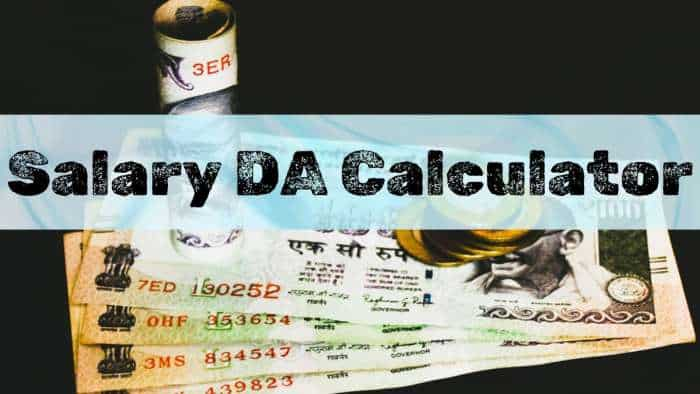Point out changes to KYC norms to your banks, do this public service, Rajan says
Calling it as "harassment for ordinary customers", Rajan said that the norms have been simplified over the years, but sometimes local branches may not be aware about it.

As there are still 28 days left for Raghuram Rajan, Governor of Reserve Bank of India to step down his post on September 4, on Tuesday Rajan said by filing complaints with RBI, you are doing a "public service".
With only few days in hand, Rajan "intends to utilise these days fully".
Starting from today itself, while presenting the bi-monthly policy, where he decided to keep the key rates unchanged, he also used the platform to spread the awareness and consumer protection campaign the RBI is embarking on.
Explaining it with a simple example, Rajan said, "If you get an email from me or any future governor promising to transfer a large sum of say Rs 50 lakh to you if only you send a small transaction fee of Rs 20,000 to a specific bank account, delete the email. The reality is such emails are not from me and the RBI does not give out money directly to ordinary citizens, even though we print plenty of it. While the emails usually contain very convincing reasons why you have been chosen to receive money, ask yourself why I cannot simply deduct ₹ 20,000 and send you Rs 49.8 lakh. If you think for a moment, you should not fall prey to such emails".
Further, stressing on another point which he has been focussing on during his three year tenure, is KYC (Know Your Customer) norms. Calling it as "harassment for ordinary customers", Rajan said that the norms have been simplified over the years, but sometimes local branches may not be aware about it.
"The applicable KYC rules can now be accessed from the RBI’s web page – there is a bar you can click on entitled “FAQs for KYCs”. For instance, if you move, your new address can be self-certified and you do not need proof of new address. If your branch does not know these simplified norms, please go to the RBI webpage and point it out to them. You will be doing a public service", Rajan said.
Moreover, apart from this, on the Foreign Currency Non Resident (FCNR) front, Rajan said that RBI doest not see the FCNR repayments as disruptive as the RBI has set frameworks to move smoothly with liquidity.
Having said that, despite easy liquidity, the banks have failed to pass on the benefits to the customers. he said, "Earlier, some bankers said that it was the lack of liquidity that was holding rates high, now I hear from some that it is fear of the FCNR(B) redemptions that is making them reluctant to cut rates. I have a suspicion that some new concern will crop up once the FCNR(B) redemptions are behind us. On our side, having examined our experience with the MCLR framework, we will shortly be suggesting some revisions. However, substantial pass through will happen only as corporate credit demand picks up, and public sector banks, strengthened by clean balance sheets, compete for corporate business".
Lastly, Rajan said that in few weeks RBI will announce guidelines for peer-to-peer lending and for account aggregators. The RBI will unveil a set of measures to improve the functioning of markets, especially the corporate bond markets on August 25. Some of these measures will be build on the suggestions in the recent Khan Committee report.
Get Latest Business News, Stock Market Updates and Videos; Check your tax outgo through Income Tax Calculator and save money through our Personal Finance coverage. Check Business Breaking News Live on Zee Business Twitter and Facebook. Subscribe on YouTube.
RECOMMENDED STORIES

Dearness Allowance (DA) Calculations: Is your basic monthly salary Rs 25,500, Rs 35,400, or Rs 53,100? Know how much DA will you get at different rates

Power of Compounding: How long it will take to build Rs 8 crore corpus with Rs 7,000, Rs 11,000 and Rs 16,000 monthly investments

Income Tax Calculations: What will be your tax liability if your salary is Rs 8 lakh, Rs 14 lakh, Rs 20 lakh, and Rs 26 lakh?

Monthly Pension Calculations: Is your basic pension Rs 25,000, Rs 35,000, or Rs 50,000? Know what can be your total pension as per latest DR rates

Fixed Deposit Rates for 1 Lakh Investment: Compare SBI, PNB, HDFC, ICICI, and Post Office 3-year FD returns
01:22 PM IST










 Here's why Raghuram Rajan did not cut repo rate
Here's why Raghuram Rajan did not cut repo rate Full text: Here's what Rajan said in his last monetary policy review
Full text: Here's what Rajan said in his last monetary policy review Rajan should get one more term,says Rahul Bajaj
Rajan should get one more term,says Rahul Bajaj  RBI monetary policy: Raghuram Rajan says no rate cut
RBI monetary policy: Raghuram Rajan says no rate cut WATCH: Top 5 stories of this morning; Rajan to announce his last monetary policy to Lupin, Adani Port to post Q1 results today
WATCH: Top 5 stories of this morning; Rajan to announce his last monetary policy to Lupin, Adani Port to post Q1 results today